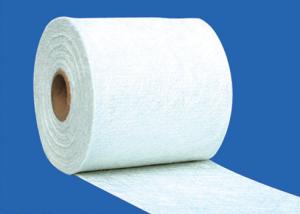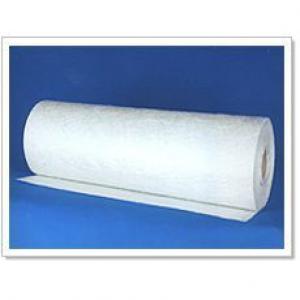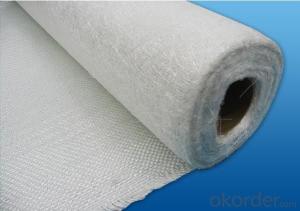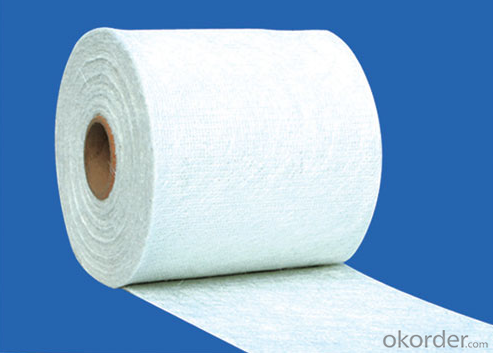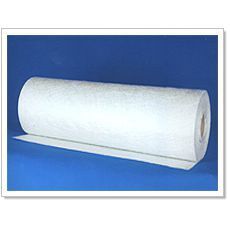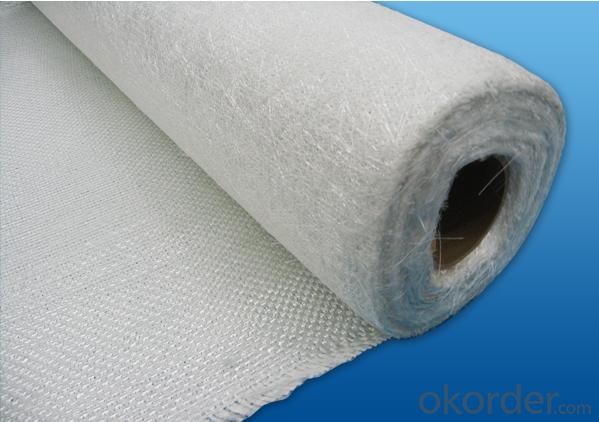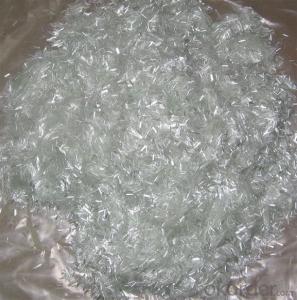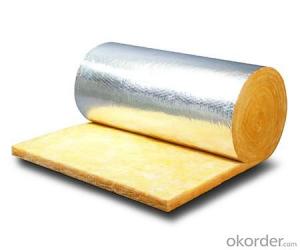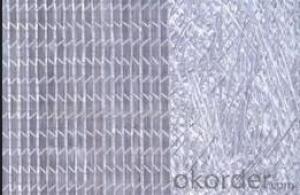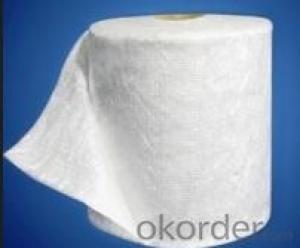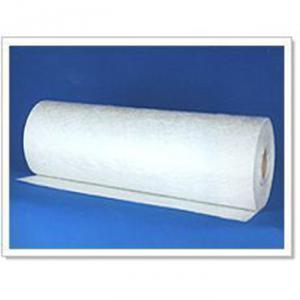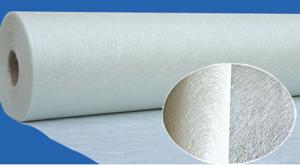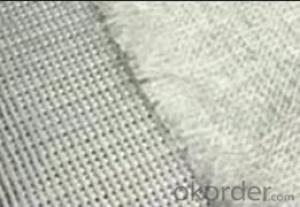Fiberglass Mat Tissue - Fiberglass Woven Roving Combo Mat 900g(600/300)
OKorder Service Pledge
OKorder Financial Service
You Might Also Like
Structure of woven roving combo mat Description:
◎ This mat is a combination of woven roving and chopped glass fiber. The layer of chopped strand is stitched together with woven roving by polyester thread. It is mainly applied in the processes of molding compressing, pultrusion, RTM, filament winding etc..
◎ This fabric is compatible with UP Resin, Vinyl ester resin, epoxy resin system etc. It is widely used in vehicle bodies and panels, marine (boat hulls and decks), pipeline, lamination and structural profiles
Main Features of the woven roving combo mat
◎ Increase strength, reduce product weight and better surface finish.
◎ low resin-consumption and faster wet-out.
◎ Good manufacturability and mechanical properties
◎ Improved fatigue and impact resistance
Woven roving combo mat Images
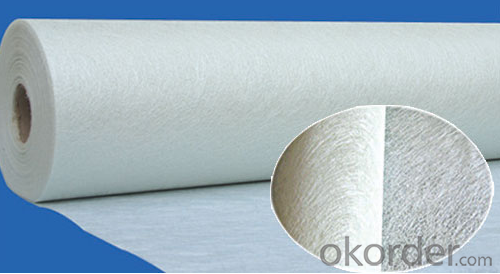
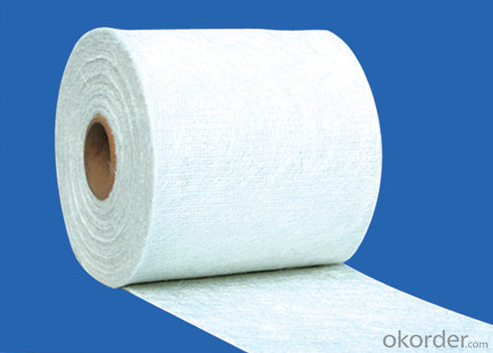
Woven roving combo mat Specification:
| ||||||||||||||||||||||||||||||||||||||||
FAQ of Woven roving combo mat:
Mainly be used as reinforced materials in the composite material industry.
• Matrix: unsaturated polyester resin, vinyl ester resin, epoxy resin and phenolic resin etc.
• Craft: pultrusion, RTM, hand lay up, etc.
• Ultimate products: pultruded profiles, FRP body of boat, insulation board, automobile body.
Delivery Detail: 15-21days
Other spec. can be custom made as per customer's request.
- Q: Is fiberglass mat tissue suitable for insulation in wastewater treatment plants?
- Indeed, fiberglass mat tissue proves to be a suitable option for insulation within wastewater treatment plants. To prevent the dissipation of heat, regulate temperature, and safeguard against corrosion, insulation becomes a frequent necessity in such facilities. Owing to its elevated thermal resistance, exceptional chemical resistance, and durability, fiberglass mat tissue emerges as a commonly employed material for insulation in these establishments. By effectively insulating pipelines, storage tanks, and other equipment within wastewater treatment plants, it guarantees optimal functionality and energy efficiency. Furthermore, its lightweight nature, ease of installation, and cost-effectiveness render fiberglass mat tissue a pragmatic selection for insulation in these rigorous environments.
- Q: Can fiberglass mat tissue be used for insulation in chemical storage tanks?
- Yes, fiberglass mat tissue can be used for insulation in chemical storage tanks. It is a commonly used material due to its excellent thermal insulation properties and resistance to corrosion, making it suitable for protecting the tank and its contents from extreme temperatures and chemical reactions.
- Q: Is fiberglass mat tissue suitable for insulation in high-rise buildings?
- Yes, fiberglass mat tissue is suitable for insulation in high-rise buildings. Fiberglass mat tissue is a widely used insulation material that offers excellent thermal and acoustic properties. It is lightweight, flexible, and easy to install, making it ideal for use in high-rise buildings where efficiency and effectiveness are crucial. Fiberglass mat tissue also has excellent fire-resistant properties, which is an essential requirement for buildings with multiple floors. Additionally, it is resistant to moisture, mold, and pests, ensuring long-term durability and performance. The material can be easily customized to fit various areas of the building, including walls, floors, and ceilings, providing consistent insulation throughout the structure. Overall, fiberglass mat tissue is a reliable and cost-effective insulation option for high-rise buildings.
- Q: Are there any specific certifications or standards that fiberglass mat tissue must meet?
- Yes, fiberglass mat tissue must meet specific certifications and standards. These can include ASTM International standards such as ASTM D7055 for fiberglass mat used in roofing applications or ASTM C1667 for fiberglass mat used in gypsum panels. Additionally, the product may need to comply with industry-specific certifications like ICC-ES for construction materials or UL for fire resistance. Meeting these certifications and standards ensures the quality and performance of fiberglass mat tissue in various applications.
- Q: What is the thermal resistance of fiberglass mat tissue?
- The thermal resistance of fiberglass mat tissue depends on various factors such as the thickness of the mat, the density of the fibers, and the presence of any additional materials or coatings. Generally, fiberglass has a low thermal resistance, meaning it is a good conductor of heat. However, when used as insulation, the thickness and density of the fiberglass mat can increase its thermal resistance, making it more effective at reducing heat transfer. It is important to note that specific values for thermal resistance can vary depending on the specific product and application, so it is recommended to consult the manufacturer's specifications for accurate information.
- Q: Does fiberglass mat tissue provide any mold resistance?
- No, fiberglass mat tissue does not provide any mold resistance.
- Q: Is fiberglass mat tissue resistant to acids?
- Yes, fiberglass mat tissue is generally resistant to acids. Fiberglass is known for its excellent corrosion resistance properties, and this includes resistance to various acids. The combination of fiberglass mat and resin creates a strong and durable material that can withstand exposure to a wide range of chemicals, including acids. However, it is important to note that the specific type and concentration of acid can still affect the resistance of fiberglass mat tissue. In some cases, certain highly concentrated or aggressive acids may cause damage or degradation to the material over time. Therefore, it is always advisable to consider the specific acid being used and consult the manufacturer's recommendations for compatibility before exposing fiberglass mat tissue to any acidic environment.
- Q: Can fiberglass mat tissue be used for making insulation panels?
- Indeed, insulation panels can be manufactured using fiberglass mat tissue. This lightweight and flexible material possesses remarkable thermal insulation characteristics. Typically, it is utilized as a reinforcing layer during the production process of insulation panels. By doing so, the mat tissue not only fortifies the panels, but also ensures efficient insulation against heat transfer. Moreover, fiberglass mat tissue exhibits resistance against moisture, mold, and mildew, rendering it highly suitable for insulation purposes.
- Q: Can fiberglass mat tissue be used in marine applications?
- Yes, fiberglass mat tissue can be used in marine applications. Fiberglass mat tissue is a lightweight and flexible material that is commonly used in boat building and repair. It provides excellent strength and durability, making it suitable for marine environments where the material is exposed to water, salt, and other harsh conditions. Fiberglass mat tissue is often used as a reinforcement layer in the construction of boat hulls, decks, and other structural components. It helps to add strength and stiffness to the composite materials used in marine applications, enhancing their overall performance and longevity. Additionally, fiberglass mat tissue is resistant to corrosion and has good water resistance properties, making it well-suited for marine applications.
- Q: Can fiberglass mat tissue be used for reinforcing concrete structures?
- Yes, fiberglass mat tissue can be used for reinforcing concrete structures. Fiberglass mat tissue is a thin, lightweight material made from woven glass fibers. It offers high strength-to-weight ratio and excellent corrosion resistance, making it an ideal choice for reinforcing concrete structures. When used as reinforcement in concrete, fiberglass mat tissue is typically embedded into the concrete mix. It helps improve the tensile strength and ductility of the concrete, preventing cracks and increasing its overall durability. Fiberglass mat tissue is commonly used in applications such as precast concrete panels, concrete pipes, and concrete overlays. It provides reinforcement to these structures, allowing them to withstand heavy loads and resist cracking, especially in areas where concrete alone may not be sufficient. Furthermore, fiberglass mat tissue is also resistant to chemicals and environmental factors, making it suitable for use in harsh conditions or exposed environments. It does not corrode or rust like traditional steel reinforcements, ensuring the longevity and structural integrity of the concrete structure. Overall, fiberglass mat tissue is a reliable and effective option for reinforcing concrete structures. Its lightweight nature, high strength, corrosion resistance, and durability make it a popular choice in the construction industry.
Send your message to us
Fiberglass Mat Tissue - Fiberglass Woven Roving Combo Mat 900g(600/300)
OKorder Service Pledge
OKorder Financial Service
Similar products
Hot products
Hot Searches
Related keywords
